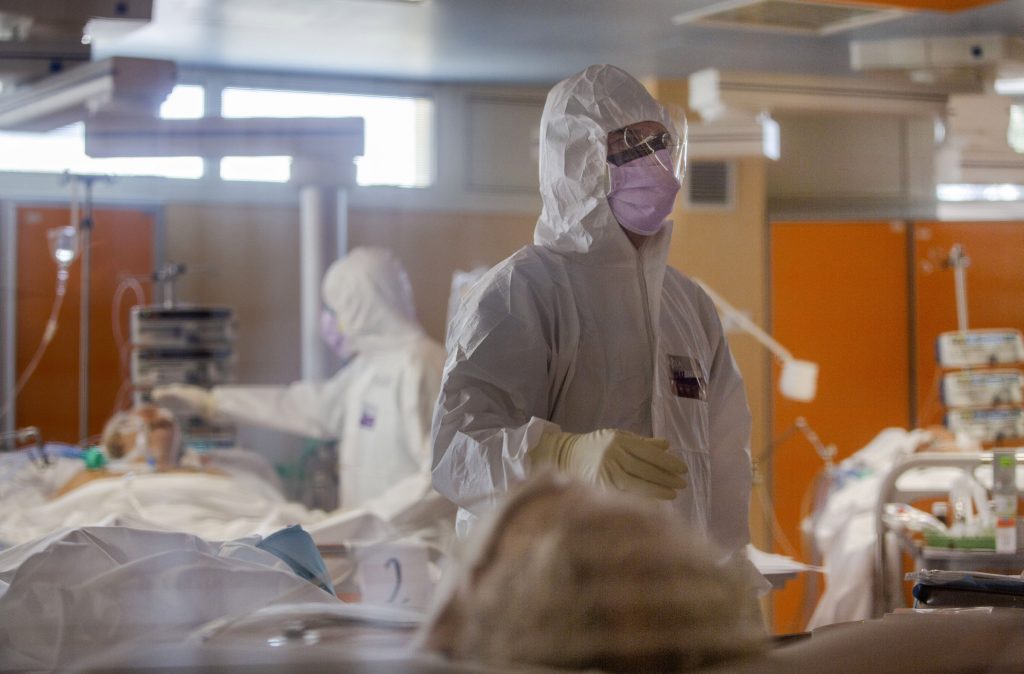The coronavirus has promptly taken over the world. A virus that just a few weeks ago felt like a distant threat to most Americans now has taken up a large spot in the collective global consciousness — the United States included.
In disaster movies, we open on the disaster’s inception in a non-American area, switch over to the average American family and then follow said family as the disaster becomes larger and the family needs to deal with the weight of a global catastrophe.
The script for “COVID-19: The Movie” basically writes itself. Our opening scene drops us at a market in Wuhan as the first person starts to show symptoms. We get some indication that it’s spreading to the general area. Then, we move over to San Francisco or New York and meet up with our main cast, an average American family with problems of their own. As the disease set up in the cold open starts to encroach upon the lead family, we meet a rude American government guy with a weak moral code and a media that occasionally pops up to frighten the family and raise the stakes. Because, as we know, nothing is actually bad and everything is a government or media conspiracy.
I’m pointing out the Hollywood track the coronavirus has taken over the past few days, because I think it makes the whole ordeal a lot scarier than it might otherwise be. It’s playing out like the apocalypse movie “2012.” I don’t know if anyone is actually convinced the coronavirus is the end times, but the narrative is a different story. So many things are changing so fast that one can’t help but to consider the film-esque pace to the current news cycle. Again, this is really no fault of the media. When the NBA cancels its season, what are we supposed to do? Just not talk about it like that’s something that happens every year? Or when St. Patrick’s Day is effectively canceled? Business as usual.
Basically, this whole eerie situation isn’t the status quo because there are certain inevitable moments that generally find themselves to be untouched by the world at large. March without the full impact of March Madness playing out is a weird societal difference that is now a reality. That type of thing is usually relegated to the movies. And in disaster movies, the most common reaction to all of this is to panic.
Luckily, we aren’t living in a movie. Unlike the characters in “2012,” we have the free will to scale our panic back and take reasonable precautions. So don’t trample your neighbors over toilet paper; that’s disaster movie logic. Social distancing, not hugging and not shaking hands are the steps that don’t work well in a big budget blockbuster, but they do work in our world. Even though we’re currently living in the movie-verse, that doesn’t mean we can’t use some real world logic in order to get back to some semblance of normalcy.

Sam Zavada is a copy editor with The Standard-Speaker in Hazleton. He previously served as the news clerk at The Standard-Speaker, working with the obituaries and the community and lifestyle pages. Sam’s work in print dates back to his time at King’s College, where he spent two years as the editor in chief of the school’s newspaper, The Crown. Earlier in his time with The Crown, he worked as a staff writer and the entertainment manager. Contact him at szavada@standardspeaker.com.




